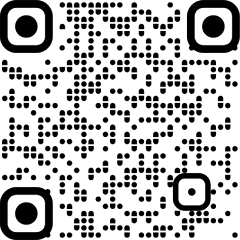PARIS: Luxury goods group LVMH posted a 10% rise in fourth-quarter sales on Thursday, as growth edged up from the previous quarter, driven by resilient demand – including from Chinese buyers – for its high-end fashion over the all-important end-of-year period.
Sales at the world’s biggest luxury group, which owns labels, including Louis Vuitton, Dior and Tiffany, came to nearly 24 billion euros ($26 billion) in the final three months of the year.
That was just ahead of analysts’ expectations for 9% growth, according to a consensus cited by HSBC. Sales had grown by 9% in the third quarter, and by 17% in both the first and second quarters.
“The highest-end products are those that have the highest demand in the world,” LVMH CEO Bernard Arnault told analysts, citing haute couture products from labels like Christian Dior and adding that this trend was set to continue.
The most expensive luxury goods makers like LVMH and Cartier-owner Richemont have shown the most resilience to a downturn in consumer spending. Rivals, which sell products at lower prices, such as Britain’s Burberry, have struggled.
Arnault said he was happy with LVMH’s growth rate and was “very confident” about 2024.
LVMH’s products include a small Lady Dior bag, which retails online at $11,500 and Dom Perignon P3 Plenitude Brut Rose champagne, which retails at $5,377.
Business at Louis Vuitton from high-end Chinese spenders in Europe reached 70% of the level generated in 2019, before the COVID-19 pandemic, chief financial officer Jean-Jacques Guiony told reporters.
“We have significant growth with Chinese customers, which continues unabated,” Guiony told reporters.
“We generated a good level of activity with comparison bases that were not so simple last year, notably in December,” he said, speaking of the group’s overall results. “In terms of demand we are fairly happy.”
Guiony said he did not expect groups of Chinese visitors to massively return soon to Europe but that LVMH was managing to make “significant” business with wealthy Chinese visiting the region.
BELLWETHER
After a post-pandemic splurge that fuelled stellar sales growth for high-end fashion companies over two years, consumers have been reining back purchases, particularly younger, less wealthy clientele that are more vulnerable to rising inflation.
LVMH, a conglomerate spanning spirits, jewellery, cosmetics and fashion, is regarded as a bellwether for the wider luxury industry.
“The results look solid at a first glance, including on the profit line, a slight beat to consensus expectations on both the margin and absolute level,” Bernstein analysts said.
The results should “tame investor concerns” following recent mixed macroeconomic news from China and suggest “a smooth rather than difficult year of normalisation” ahead for LVMH, said analysts at Citi.
Barclays’ analysts project industry-wide growth from high-end luxury companies of 5% this year, down from 9% last year and double digit growth the previous two years.
Spending by Americans and Europeans remains subdued, the analysts say, and has been only partially offset by the return of Chinese tourists after lockdowns.
Sales at LVMH’s fashion and leather good division, which includes its largest labels Vuitton and Dior, climbed 9% during the quarter, just below expectations for 10% growth.
The group proposed a dividend of 13 euros per share, up from 12 euros a year ago. It forecast continued growth next year despite an uncertain macroeconomic and geopolitical context.
Asked about rival Richemont, which owns Cartier and Van Cleef & Arpels, Arnault said that he had no desire to disrupt its chairman’s strategy but drew laughs when he deadpanned: “If he needs help to stay independent, I’m here.”
Arnault has been tightening his family’s grip on LVMH, and on Thursday the group said it would name his sons Alexandre Arnault and Frederic Arnault to the board of directors, as well as French businessman Henri de Castries, at the company’s annual meeting on April 18, confirming recent reports.
“I don’t intend to leave in the near term or medium term,” Arnault said.


